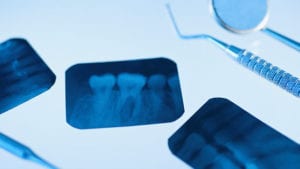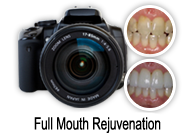A Discussion Of Dental X-Rays
Created on October 30, 2016

Dental x-rays are amazing. They are pictures of your teeth, bones and the soft tissues that surround them, and they are a crucial component of your twice-yearly dental exams and cleanings.
A dental x-ray can detect damage to your teeth and gums that is not visible to your dentist’s naked eye. It can also show the bone structure of your face and jaw, indicate the condition of your teeth and show the location of impacted teeth and teeth that have not yet developed.
A dental x-ray can also detect cavities, gum disease, abscesses, tumors, and cysts.
Are you concerned about how often you should get a dental x-ray? Because every mouth is unique, x-ray schedules are likewise unique. If you are a new patient, we will take full-mouth x-rays to evaluate your oral health and to track it for future visits. If you are changing dentists and recently had x-rays taken, you can ask to have them sent to us.
What are the kinds of dental x-rays?
- The most common type is known as “bitewings,” which require you to bite down on a piece of plastic with x-ray film in the center. They can determine the presence of decay between your teeth where decay-causing bacteria often hide.
- “Periapical” x-rays image your entire tooth, including the roots, to help evaluate root structure and bone level, and to detect possible cysts and abscesses.
- “Occlusal” x-rays image your palate (roof) and the floor of your mouth. They are used to locate teeth that have not yet broken through the gums, jaw abnormalities or fractures, and growths or cysts.
- “Panoramic” x-rays produce a broad view of your sinuses, nasal area, teeth, and temporomandibular (TMJ) joints. They typically find impacted teeth, bone abnormalities, tumors, infections, and fractures.
We take into consideration your individual needs and dental conditions, and prescribe x-rays when they are appropriate – because taking care of your teeth is very important to us. Call to schedule an appointment, today: (413) 781-7645.
Tagged with:




